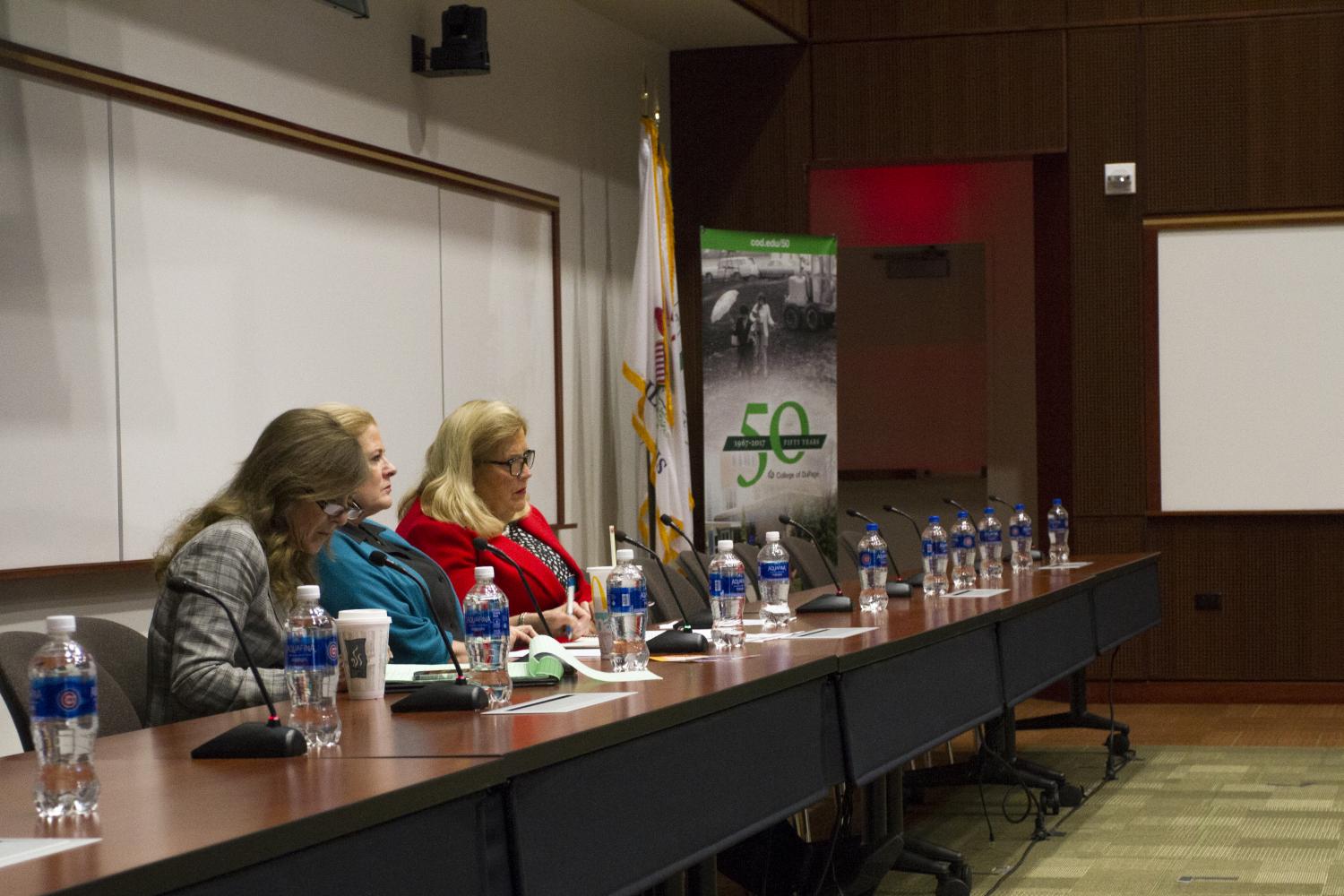COD hosts Illinois Human Trafficking Task Force hearing
State Rep. Patricia Bellock with other members of the panel
September 19, 2017
Washington’s immigration crackdown is a thorn in the flesh for another group of people—survivors of human trafficking.
Harriet is a human trafficking survivor receiving assistance from Heartland Alliance, a Chicago–based anti-poverty organization. She moved to the United States from a war-torn country after a guy tricked her into believing he loved her.
One of many hearings scheduled by the Illinois Human Trafficking Task Force was held at the College of DuPage on Sept. 14, aimed at raising awareness about what people like Harriet go through.
Harriet was granted a fiancé visa to live what should have been the “American Dream.”
Instead, the man she trusted forced her to “slave, cook and clean” and have sex with him. She later became pregnant and bore two children. Domestic violence and verbal abuse kicked in. In this pandemonium, Harriet had to do whatever her trafficker wanted her to do or lose her legal status in the U.S.
When Harriet reached her breaking point, she escaped. The result was an expired visa and no access to services to provide for her children. In immigration terms, Harriet became undocumented.
Heartland Alliance became a source of relief.
“The scheme to bring her to the U.S. was fraudulent, a potential for marriage was a lie, and the goal was to exploit her for work in the home,” recounts Heartland Alliance’s Associate Director – Freedom from Trafficking Derci Flynn.
Harriet and many unknown survivors fear being deported and separated from their children. Harriet was able to get the help she needed because she was brave enough to seek help.
“Sowing fear will only keep people like Harriet from seeking help in such situation,” added Flynn. “This will stop people who have undergone the most horrible abuse from coming forward.”
State Rep. Patricia Bellock, flanked by lawmakers, attorneys and stakeholders hosted the hearing at COD to get feedback and engage organizations working to fight human trafficking within Illinois. In August of 2016, Gov. Bruce Rauner signed legislation that created this task force to seek an end to human trafficking.
Last year, 555 calls were made to the human trafficking hotline in Illinois. Also, 122 cases were reported during the same period. This is coupled with Chicago and its metropolitan areas being a hub for human trafficking according to authorities.
A stakeholder like Flynn wants the task force to shift the dialogue and talk about other issues that facilitate human trafficking—race, age and poverty.
“We know that human trafficking exists because poverty exists,” said Flynn. “We know that nearly one-third of people living in Illinois are living at or near the poverty line, and that extreme poverty reaches all 102 counties of the State of Illinois.”
College of DuPage isn’t new to this type of conversation. Last year, Phi Theta Kappa hosted a series of events to create an awareness about Illinois’ battle with human trafficking. The society was again engaged with this hearing.
“Having this hearing is important to raise awareness of the efforts being done to eradicate human trafficking and learning about what organizations are doing to combat it,” said PTK’s Vice President Heather Blaney.
For the society’s Honor in Action (HIA) project, they intend to help survivors at safe houses feel confident and provide various cosmetology services.


















